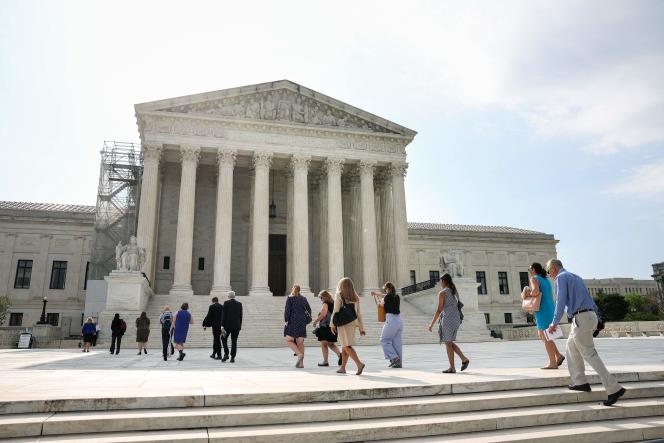The Supreme Court of the United States refused, Tuesday, June 27, to transform the electoral law to give more latitude to the States in the organization of the presidential election and for the Congress. By a majority of six judges out of nine, the high court rejected a reform proposal by Republican parliamentarians from North Carolina which, according to its detractors, would have weakened American democracy.
Postal voting, office opening hours, documents to be presented to register on the electoral lists…: the Constitution entrusts the elected representatives of each State with the task of setting “time, place and procedure” polls. Their laws, however, are subject to review by local courts. That’s what North Carolina elected officials wanted to change.
For them, the Constitution “places the regulation of federal elections in the hands of state legislators and no one else” at this level, a theory called “independent state legislators”.
The Constitution “does not shield local legislatures from ordinary judicial review by the courts of their state”, however, retorted the temple of American law on Tuesday in a judgment which was immediately welcomed on the left. The Supreme Court rejected a “marginal theory”Who “threatened our democracy and the balance of power”, tweeted former Democratic President Barack Obama.
North Carolina Supreme Court U-turn
Concretely, the file stemmed from the 2020 census, which recorded an increase in the population in North Carolina. Consequently, the State had won an additional seat in the House of Representatives and its parliamentarians had redrawn the contours of the constituencies.
Their map, however, was struck down by the state Supreme Court, which ruled that it favored the Republican Party by grouping Democratic voters in certain precincts to dilute their vote elsewhere. A second card did not seem fairer, the local high court had appointed an independent expert to take care of it.
Local lawmakers then turned to the US Supreme Court, blaming the state judiciary for usurping their role. The high court had refused to intervene urgently and the expert’s card served well in the mid-term elections in November, allowing seven representatives from each party to be elected.
During this election, the balance has changed in the Supreme Court of North Carolina, where conservative judges are now clearly in the majority. In the aftermath, they changed hands and considered that they were not competent to invalidate the division of constituencies. It is therefore possible that local parliamentarians will redraw a new map before the 2024 elections. The decision of the Supreme Court would then have no concrete impact.
